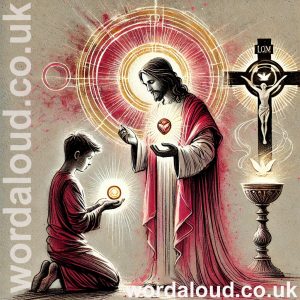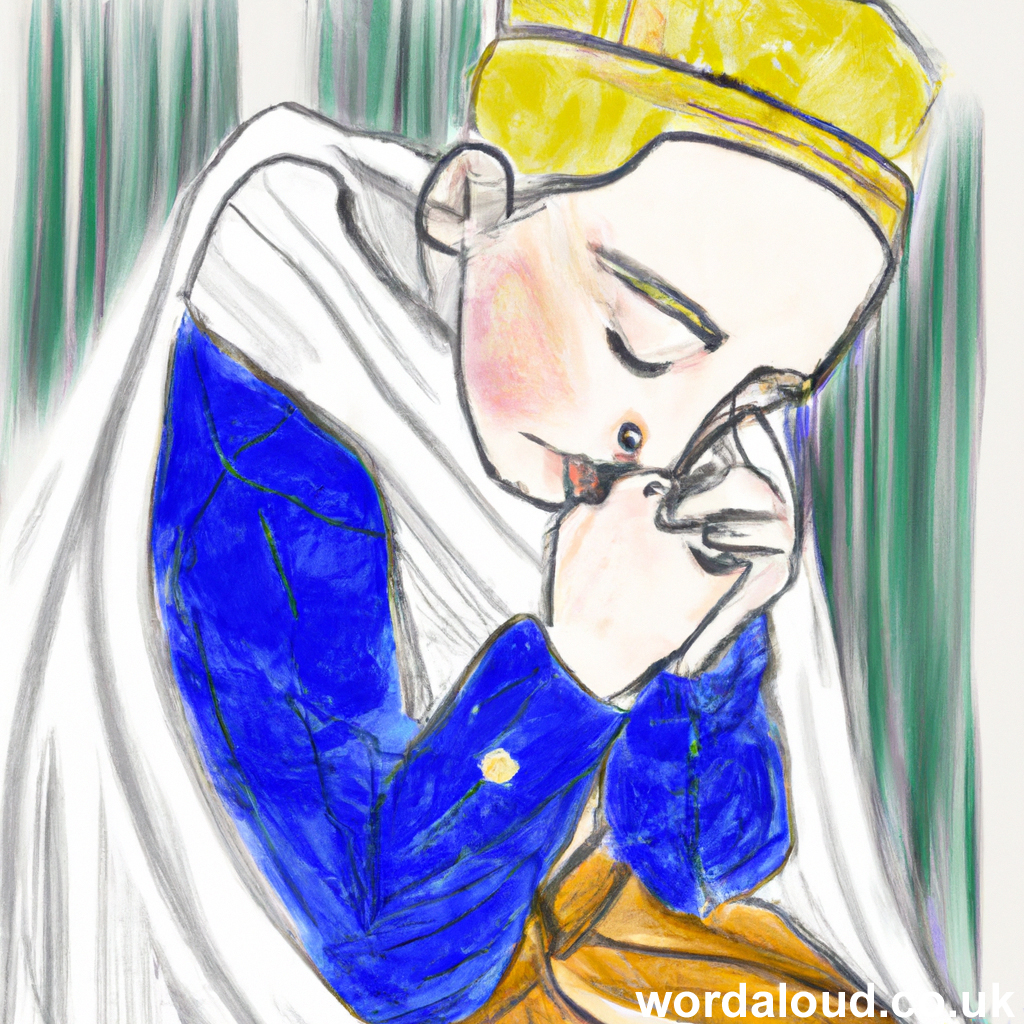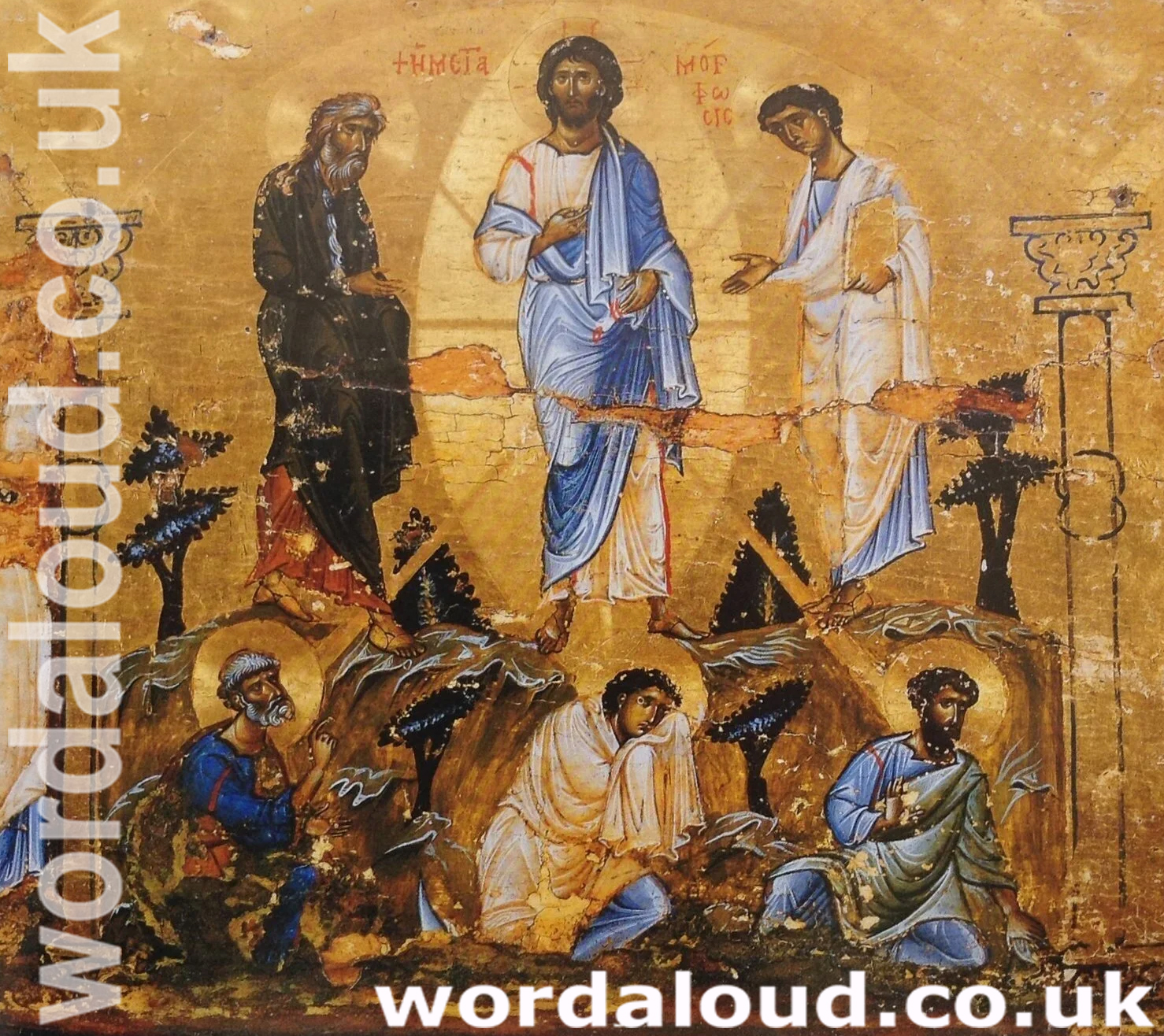Christian Art | Jesus Lives | We Live As The Bride Of Christ, The Church
Office Of Readings | Week 17, Thursday, Ordinary Time | A Reading From The Instructions Of Saint Cyril Of Jerusalem To The Catechumens | The Church Is The Bride Of Christ
‘The Church, bride of Christ.’
In this reading of Saint Cyril of Jerusalem, we encounter a vision of the Church both radiant and robust—at once the Bride of Christ, the mother of believers, the spiritual city of Jerusalem, and the instrument of eternal life. This rich ecclesial portrait, drawn from the fourth century, is relevant today, offering insights not only into the Church’s theological foundations but also into the spiritual identity of her members.
Saint Cyril (c. 313–386 AD), bishop of Jerusalem and Doctor of the Church, composed these catechetical instructions for those preparing to enter the Church through baptism, likely during the final weeks of Lent. His reflections are imbued with the fervour of a pastor eager to impart not only doctrine but a deep sense of belonging and mission.
The Catholic Church | Bride And Mother
Cyril begins by affirming the ‘Catholic Church’ as the distinctive name of the one, holy, universal Church. The term ‘Catholic’, derived from the Greek katholikos (meaning ‘according to the whole’ or ‘universal’), was already in use by the early second century, notably by Saint Ignatius of Antioch, and had become a recognized way to distinguish the true Church, founded by Christ and spread throughout the world.
To describe her, Cyril employs nuptial imagery: the Church is the Bride of Christ, His beloved for whom He ‘gave Himself up’ (Ephesians 5:25). This biblical metaphor, used by Saint Paul and later expanded in the Book of Revelation (21:2), is not a mere symbol but expresses the deepest covenantal bond between Jesus Christ and his Church—one of love, sacrifice, and fruitfulness. Just as Eve was formed from Adam’s rib, so the Church is born from the pierced side of Christ, from which flowed blood and water (John 19:34)—baptism and Eucharist.
The Church is also the mother of us all, echoing the words of Galatians 4:26: ‘The Jerusalem above is free, and she is our mother.’ This heavenly Jerusalem, no longer barren, now gives birth to countless spiritual children through baptism and instruction. For Cyril, the Church on earth bears the image of this heavenly archetype. She is not merely a human association; she is a mystery from above.
From Old To New | The Church As Fulfilment
Cyril draws a sharp yet theologically grounded contrast between the ‘first assembly’ (Israel) and the ‘second’, which is the Catholic Church. This is not a rejection of Israel’s significance, but a recognition—following Saint Paul’s teaching—that the Church is the fulfilment of Israel, the people of the New Covenant (cf. Romans 9–11). Whereas the Old Testament assembly was bound to a particular nation, place, and law, the New is extended to all peoples and governed not by the letter of the law, but by the Spirit.
He enumerates the divine appointments within this new assembly, following Saint Paul’s list in 1 Corinthians 12: apostles, prophets, teachers, miracle workers, healers, administrators, and speakers in tongues. This underscores the spiritual richness and variety of the Church. It is not a uniform institution but a body animated by many gifts, united by the one Spirit for the good of all.
Yet Cyril is careful to balance the extraordinary with the ordinary. Alongside the charisms, he lists the virtues: wisdom, understanding, self-control, justice, mercy, kindness, and ‘invincible patience in persecution’. These are not secondary gifts; they are essential marks of a truly Christian life, and they are cultivated in every age, whether in peace or adversity.
The Church In Persecution And In Peace
Cyril reflects movingly on the history of the Church’s witness, recalling how she once ‘crowned her holy martyrs with many-flowered wreaths of endurance’. This poetic phrase evokes the image of saints who endured torture, exile, and death rather than deny their Lord. The Church honours their blood as seed—martyrs who nourished the soil of the Church with their sacrifice.
He then marks the change of era in his own time. Under Constantine and his successors, the Church had moved from persecution to imperial favour. Now, says Cyril, ‘she receives her due honour from kings and men of high station’. While temporal rulers exercise limited authority, ‘the holy Catholic Church alone has a power without boundaries throughout the entire world.’ Cyril’s observation is both historical and theological. The empire has borders; the Church does not. Her mission is not earthly dominion but universal salvation.
This line—’God has made peace her border’—likely recalls Psalm 147:14: ‘He makes peace in your borders; he fills you with the finest wheat.’ It is an image of divine provision: the Church, fed with the bread of life and guarded by divine peace, extends across the world without violence, conquering not by the sword but by the truth and grace of Christ.
Eternal Life | The Goal Of Every Christian
Cyril concludes his instruction by turning to the Creed, the rule of faith. After professing belief in the resurrection of the body, the catechumen affirms belief in ‘life everlasting’. For Cyril, this is no vague or distant hope—it is the entire purpose of Christian existence. ‘The goal set before us is no trifling one,’ he writes. ‘We are striving for eternal life.’
Here Cyril displays a profound understanding of Trinitarian theology. He identifies the Father as the ‘fountain of life’ who pours forth His heavenly gifts ‘through the Son in the Holy Spirit’. This cascade of divine life flows from the Trinity into creation, and ultimately into the soul of the believer. Eternal life, then, is not simply unending duration—it is communion with the living God. It is to share, even now in mystery, and fully in the age to come, in the life of the Father, Son, and Holy Spirit.
This teaching resonates with the early Christian concept of theosis, or divinisation—the idea, drawn from Scripture (cf. 2 Peter 1:4), that we are called to become ‘partakers of the divine nature’. Eternal life is not something merely awaiting us after death; it is a quality of life already begun in baptism and nourished through the sacraments, particularly the Eucharist, which is the ‘pledge of future glory’.

A Reading From The Instructions Of Saint Cyril Of Jerusalem To The Catechumens | The Church Is The Bride Of Christ
The Catholic Church is the distinctive name of this holy Church which is the mother of us all. She is the bride of our Lord Jesus Christ, the only-begotten Son of God (for Scripture says: Christ loved the Church and gave himself up for her). She is the type and she bears the image of the Jerusalem above that is free and is the mother of us all, that Jerusalem which once was barren but now has many children.
The first assembly, that is, the assembly of Israel, was rejected, and now in the second, that is, in the Catholic Church, God has appointed first, apostles, second, prophets, third, teachers then workers of miracles, then healers, helpers, administrators and speakers in various kinds of tongues, as Paul says; and together with these is found every sort of virtue – wisdom and understanding, self-control and justice, mercy and kindness, and invincible patience in persecution. With the weapons of righteousness in the right hand and in the left, in glory and dishonor, this Church in earlier days, when persecution and afflictions abounded, crowned her holy martyrs with the varied and many-flowered wreaths of endurance. But now when God has favored us with times of peace, she receives her due honor from kings and men of high station, and from every condition and race of mankind. And while the rulers of the different nations have limits to their sovereignty, the holy Catholic Church alone has a power without boundaries throughout the entire world. For, as Scripture says: God has made peace her border.
Instructed in this holy Catholic Church and bearing ourselves honorably, we shall gain the kingdom of heaven and inherit eternal life. For the sake of enjoying this at the Lord’s hands, we endure all things. The goal set before us is no trifling one; we are striving for eternal life. In the Creed, therefore, after professing our faith, ‘in the resurrection of the body,’ that is, of the dead, which I have already discussed, we are taught to believe ‘in life everlasting,’ and for this as Christians we are struggling.
Now real and true life is none other than the Father, who is the fountain of life and who pours forth his heavenly gifts on all creatures through the Son in the Holy Spirit, and the good things of eternal life are faithfully promised to us men also, because of his love for us.
Christian Prayer With Jesus Christ
Heavenly Father,
Fountain of all life and source of eternal joy,
You have called us to be part of the one, holy, Catholic, and apostolic Church—
the Bride of Your beloved Son, and the mother of all who believe.
Strengthen us, O Lord,
that we may bear ourselves honourably as children of this divine household.
Fill us with the virtues of patience, mercy, wisdom, and justice.
Grant us courage in adversity, humility in peace,
and joy in the hope of life everlasting.
Through Your Son, Jesus Christ, who gave Himself for the Church,
and in the Holy Spirit, who sanctifies her through every age,
unite us ever more deeply with You—
Father, Son, and Holy Spirit—
now and for ever.
Amen.
Glossary Of Christian Terms
Catholic Church – From the Greek katholikos meaning ‘universal.’ Refers to the Church founded by Christ and spread throughout the world, holding the fullness of the faith.
Bride of Christ – A biblical image of the Church’s intimate and covenantal union with Christ, her divine Bridegroom (cf. Ephesians 5:25–27; Revelation 21:2).
Jerusalem above – A reference to the heavenly city mentioned in Galatians 4:26, symbolising the spiritual mother of all believers.
Catechesis – Instruction in the Christian faith, especially for those preparing for baptism.
Charisms – Spiritual gifts given by the Holy Spirit for the good of the Church, such as teaching, healing, or prophecy (cf. 1 Corinthians 12).
Theosis (Divinization) – The early Christian teaching that believers are called to participate in the divine nature (cf. 2 Peter 1:4), becoming like God by grace.
Creed – A formal summary of Christian belief, such as the Nicene Creed, professed at baptism and in the liturgy.
Eternal life – The life of God shared with the faithful, beginning now in grace and fulfilled after death in glory.
Martyrdom – Bearing witness to Christ even unto death; seen by the early Church as the highest form of Christian discipleship.
Mystagogy – Instruction given to the newly baptized, helping them understand the sacraments they have received, especially during the Easter season.








